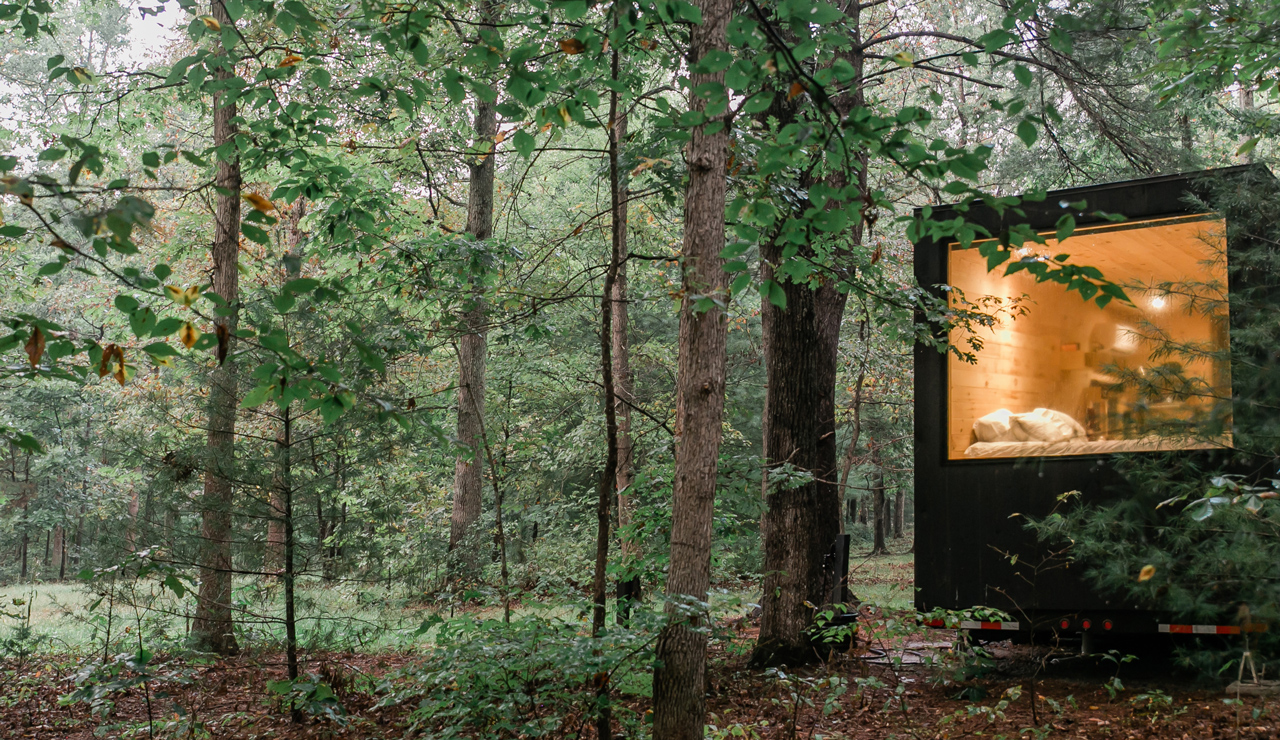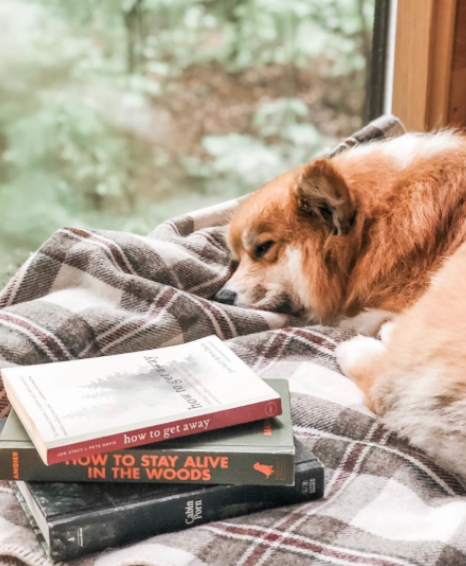Much has been made lately of the great pleasure of eliminating extraneous things from our lives. In the wake of the Netflix miniseries Tidying Up, Instagram was overflowing with posts about the dazzling transformation people experienced by following Marie Kondo’s method of simplifying their possessions to only those things that bring them joy. Just search #kondo or #tidyingup, and you’ll find tens of thousands of posts, both inspirational and aspirational.
The popularity of this trend makes intuitive sense. I mean, who wouldn’t want more joy?

Essentialism at Postcard Cabins
We started Postcard Cabins to help people experience the pleasure of existing unencumbered and in the moment. So our philosophy shares some DNA with the burgeoning minimalism movement. But there are also some pretty big differences. Namely, how we think about joy. In our view, joy isn’t something to be individually achieved—the reward of a well-organized life—but something to be continuously and collectively cultivated.
Earlier this year, our founder Jon gave a speech at an annual conference of the National Retail Federation that explored how we see Postcard Cabins in relation to the current trend of minimalism. Moreover, he explored why what we’re offering is actually a better option; we are providing what people might really be seeking when they take that first step toward simplifying their lives.
Postcard Cabins is about stripping away distractions and focusing on what really matters to you. It’s taking the central thesis of minimalism—you don’t really need all this stuff—and asking then next obvious question: what do you need to live a truly balanced life?
So we try to provide a few things we think we all need. The first is an opportunity to experience the restorative power of nature—to calm us, to inspire us, to force us to slow down, and to expand our perspective. The second is the time to nurture our relationships—with ourselves and with our loved ones. And the last is the luxury of experiences unmediated by technology.
If you’ve been close to startup culture over the past decade or so, you’ve probably heard people use the word “disrupt” as a positive—disrupting an outdated industry or product. But we think of it in the more traditional, troublesome sense. Sure, technology powers our progress. But it also distracts us—pulling us away from things that may feel less urgent but are ultimately more important.
So at Postcard Cabins, we ask you to lock away your phone, and we encourage you to explore the world around you, and the ideas and feelings and relationships that matter to you.

Why Essentialism Matters
There’s a connection here to what all those minimalists are prescribing, a call to judge the things you own not by what they’re worth, but what they’re worth to you. But the focus with minimalism is still always on our things, or lack thereof—not on the people, the places, the memories, and the feelings that enrich us.
Those kinds of experiences can’t be entirely engineered. They’re personal and unpredictable. There’s no right way to do them. They’re also forgiving. Ask any new parent what their volume of “stuff” looks like, and you’ll quickly run up against the limits of minimalism. It can be useful to think intentionally about the things you own, but we don’t think you need to swear off creature comforts and embrace asceticism to find balance. In fact, we believe the only way to feel truly free and at ease is to have all the essentials—everything you need, nothing you don’t—taken care of. We all need stuff. But we also don’t need to dwell too hard on it.
Because we know our things are never really what makes our lives memorable and meaningful. It’s those early morning sunrises. Those quiet cups of coffee. Those late night talks. Those bursts of creativity that lead us in totally new directions. Those things that we do, and the people we do them with—that’s what we’ll remember a decade down the line.
This growing trend of centering our possessions—even in their absence— over our relationships is the antithesis of what Postcard Cabins is all about. So you’ll never catch us encouraging you to ruthlessly discard or needlessly sentimentalize your stuff. Because we’ve learned that what people really want is what we’re offering: unstructured time in a natural environment that already has everything you need, and nothing you don’t.

